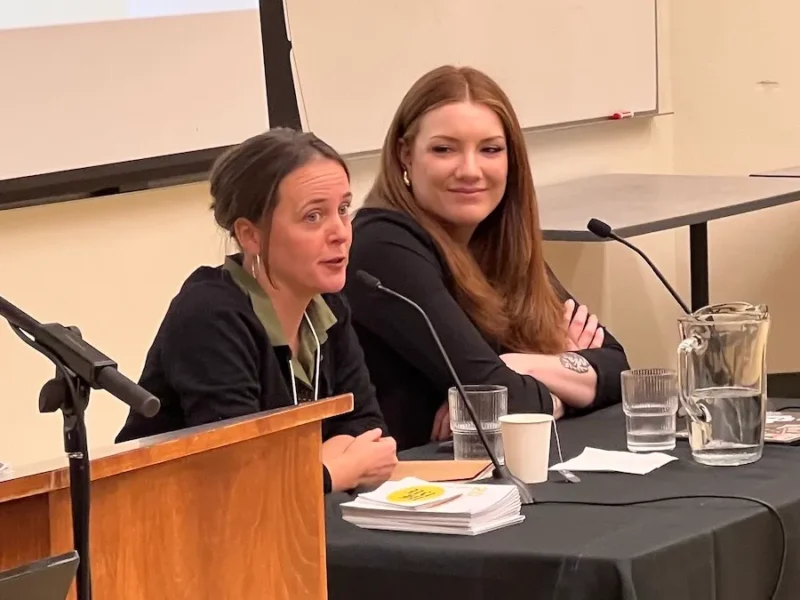Science
ACTO Highlights Housing Crisis Amid 16 Days of Activism Against GBV

The Advocacy Centre for Tenants Ontario (ACTO) has highlighted the urgent connection between housing security and gender-based violence (GBV) as it participates in the global observance of the 16 Days of Activism Against GBV. This campaign, which runs from November 25 to December 10, aims to raise awareness about the pervasive issue of violence against women and gender-diverse individuals. ACTO’s recent activities coincide with National Housing Day, marked on November 22, emphasizing the need for stable housing solutions for vulnerable populations.
Survivors of GBV often find their access to safe and affordable housing severely compromised. Many are trapped in cycles of violence and homelessness that can persist for years. ACTO’s advocacy stresses that these two issues are deeply intertwined, with inadequate housing options exacerbating the struggles faced by survivors. For those fleeing abusive situations, the lack of stable housing means facing an impossible choice: remain in a violent home or risk homelessness.
The realities of Ontario’s housing system create significant barriers for survivors. According to ACTO’s research, landlords can refuse to remove the abuser from a joint lease, leaving survivors legally bound to their aggressors. Shelters are often at capacity, forcing many individuals back into dangerous environments. The eviction processes can overlook the complexities of financial abuse and coercive control, putting survivors at risk of losing their homes. Furthermore, priority programs for social housing can take months or even years to yield results, leaving many without viable options.
Systemic Barriers and Housing Abuse
Survivors of GBV experience a secondary form of victimization through what ACTO describes as housing abuse. This term encompasses the legal, financial, and structural challenges that penalize survivors for circumstances beyond their control. One survivor articulated the impact of these challenges, stating it creates an “awful, vicious, vicious, vicious circle.” They face liability for damages caused by the abuser and often lose access to their own rent deposits, compounding their suffering.
The connection between housing instability and increased risk of femicide is well-documented. Survivors report that the trauma inflicted by the housing system often compounds their previous experiences of violence. As one survivor poignantly asked, “Where are we allowed to exist? Please tell me, where am I allowed to exist? Nowhere.” This sentiment underscores the urgent need for systemic change to address the housing crisis alongside GBV.
Calls for Systemic Change
ACTO urges all levels of government to declare GBV an epidemic, embedding housing stability as a critical component of violence prevention strategies. Such a declaration could provide essential context in legal settings, highlighting the severity of survivors’ experiences during decision-making processes.
Increased funding is needed for housing and support services tailored specifically for survivors, including dedicated resources for Indigenous-led initiatives. Additionally, the limitations of the Residential Tenancies Act, 2006 must be addressed to ensure adequate protections for survivors facing violence in their rental situations.
A mechanism prioritizing stable housing for survivors is essential. Current systems do not allow survivors to remain in their homes while removing the abuser from the lease, which is a critical gap that needs to be filled. Survivors deserve what every individual should have: a safe home, a stable future, and a life free from violence.
ACTO’s research and advocacy efforts highlight the urgent need to address the intertwined crises of housing insecurity and gender-based violence. As survivors continue to voice their needs, it is clear that a coordinated response is necessary to ensure their safety and wellbeing. The call for action is not just about survival; it is about enabling individuals to thrive in a safe and supportive environment.
-

 Politics3 weeks ago
Politics3 weeks agoSecwepemc First Nation Seeks Aboriginal Title Over Kamloops Area
-

 World4 months ago
World4 months agoScientists Unearth Ancient Antarctic Ice to Unlock Climate Secrets
-

 Entertainment5 months ago
Entertainment5 months agoTrump and McCormick to Announce $70 Billion Energy Investments
-

 Lifestyle4 months ago
Lifestyle4 months agoTransLink Launches Food Truck Program to Boost Revenue in Vancouver
-

 Science5 months ago
Science5 months agoFour Astronauts Return to Earth After International Space Station Mission
-

 Technology3 months ago
Technology3 months agoApple Notes Enhances Functionality with Markdown Support in macOS 26
-

 Top Stories2 months ago
Top Stories2 months agoUrgent Update: Fatal Crash on Highway 99 Claims Life of Pitt Meadows Man
-

 Lifestyle3 months ago
Lifestyle3 months agoManitoba’s Burger Champion Shines Again Amid Dining Innovations
-

 Politics4 months ago
Politics4 months agoUkrainian Tennis Star Elina Svitolina Faces Death Threats Online
-

 Sports5 months ago
Sports5 months agoSearch Underway for Missing Hunter Amid Hokkaido Bear Emergency
-

 Politics4 months ago
Politics4 months agoCarney Engages First Nations Leaders at Development Law Summit
-

 Technology5 months ago
Technology5 months agoFrosthaven Launches Early Access on July 31, 2025





















